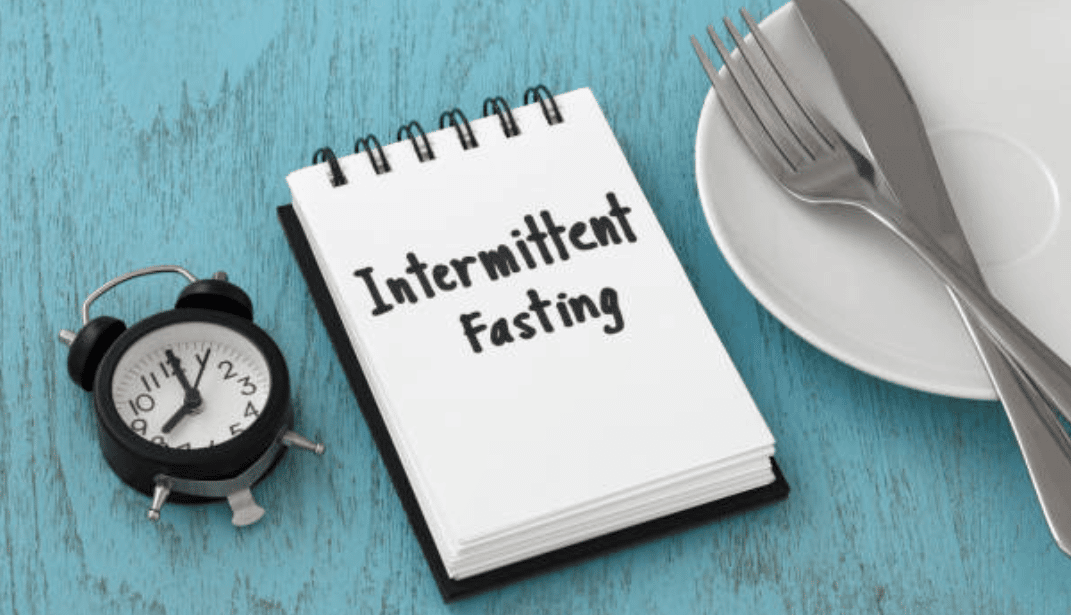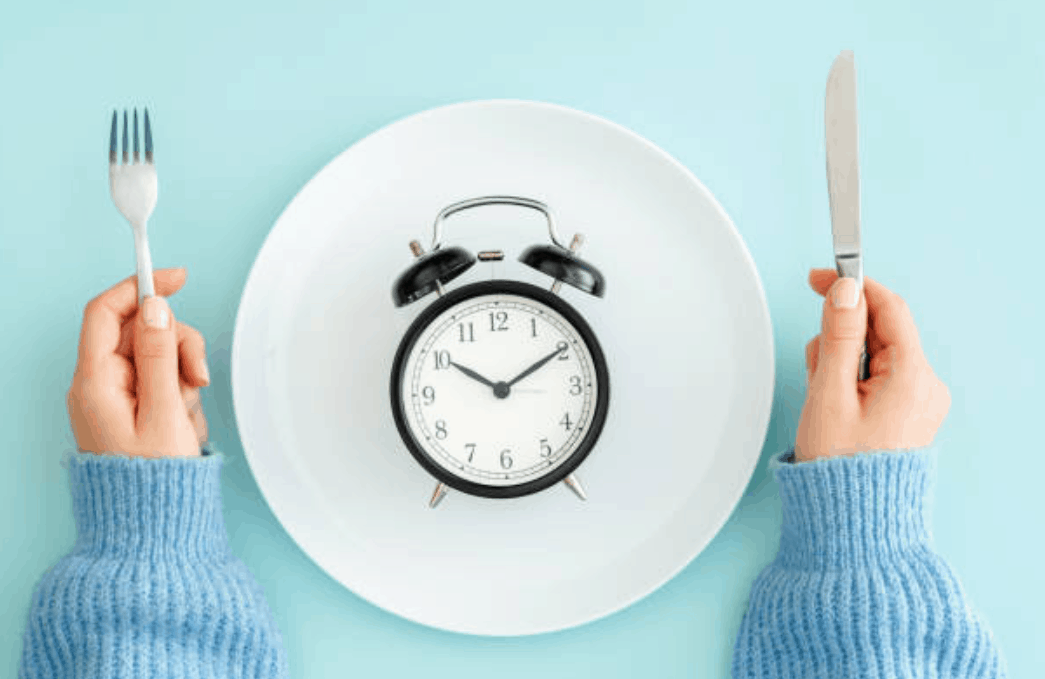Is intermittent fasting better for weight loss than a balanced diet?
The intermittent fasting has become increasingly popular in recent years among people seeking to lose weight and fat. Some of them are trying to develop their muscle mass and optimize their body composition. This diet consists of purifying the body by depriving it of food for periods of several hours. But is intermittent fasting really more effective than a food rebalancing classic ?
Contents
What is intermittent fasting?
Definition of intermittent fasting
Intermittent fasting (or fasting) is a method of eating that involves alternating periods of fasting. In other words, the individual voluntarily deprives himself ofenergy intake (caloric restriction) for several hours and alternates with intermediate periods of regular food intake. These two phases are linked in a recurrent manner over the long term.
In fact, it is possible to distinguish three types of fasting intermittent :
- the alternate fastingThis involves fasting for 24 hours, one or more times a week, while continuing to eat normally the rest of the time;
- the partial fastThis consists of organizing 1 to 2 days per week with a very low calorie intake (about 25 % of daily energy needs) and eating at its maintenance calories the rest of the time;
- the time-limited fasting with food in time, which refers to a daily eating routine that alternates between a 16-20 hour fasting period and a 4-8 hour eating period. For example, for a conventional 16-8 fast, the individual may only consume food between 10 am and 6 pm. For a 20-4 fast, he or she is only allowed to eat during a 4-hour window per day (between 2 p.m. and 6 p.m. for example). Another approach to fasting is that applied during the Ramadan including.
The alleged benefits of intermittent fasting
Proponents of intermittent fasting are convinced that this approach is more effective than other forms of diet to lose weight. They claim that benefits of intermittent fasting These include:
- a weight loss more important,
- a basal metabolic rate higher at rest,
- better conservation of the muscle mass,
- an improvement in the insulin sensitivity.
One thing is for sure, all weight loss diets require changes in eating habits. But then, is it really possible to use the intermittent fasting method to lose weight faster ? And is there scientific evidence to support the weight loss benefits attributed to this approach?
Intermittent fasting versus continuous caloric restriction
Intermittent fasting and its various variations tend to go hand in hand with the caloric restriction. Also known as the low-calorie diet, calorie restriction involves adopting a diet in which calorie intake is reduced to a minimum.
In the case of alternate fasting, for example, many individuals do not eat enough on the feeding days to compensate for the caloric deficit This phenomenon also tends to occur in people who practice time-limited fasting. This phenomenon also tends to occur in people who practice time-limited fasting. Most fasters naturally limit their power window to only a few hours a day.
The same applies to partial fasting with 1 to 2 days of low-calorie diet. On the other 5 or 6 days of the week, you should eat your maintenance calorie count. This would result in a weekly calorie restriction and therefore a weekly energy deficit.
It is therefore essential to understand that intermittent fasting is ultimately a fully-fledged form of caloric restriction. But unlike "normal" caloric restriction, its difference lies in the duration and frequency of fasting periods. In intermittent fasting, these periods are longer and further apart.
Keep in mind that it is essential to drink water during your fasting periods to ensure the wellness of the body. Getting enough fluids also plays a very important role in the satiety. In other words, you will be less tempted to snack. Finally, to lose fat and achieve your goals, you will need to adopt a balanced diet during the periods when food consumption is allowed and always respect the distribution of your macronutrients (proteins, lipids and carbohydrates).
The effects of intermittent fasting on weight loss
Numerous scientific studies have investigated the effects of intermittent fasting on weight loss. However, most of this research has a number of limitations:
- the lack of control groups to compare results,
- a control group that does not control caloric or protein intake (despite the fact that proteins are much more thermogenic and satiating than carbohydrates and fats),
- The "intermittent fasting" group tends to eat fewer calories while often underestimating their food intake.
If one eliminates the studies that suffer from the limitations mentioned above, only a small number of studies remain that compare the effects of intermittent fasting to a classic continuous energy restriction. And they all come to the same conclusion: both types of diet lead to identical results in terms of weight loss and reduction of body fat.
Intermittent fasting and the normal diet are therefore two effective methods for slim downThis is the case if the individual imposes a caloric restriction on himself, of course. Between the two, it is all a matter of personal choice. For various reasons, some people will prefer the young intermittent while others will opt rather for a food rebalancing normal.
Intermittent fasting and metabolic rate
The metabolic rate (also known as resting basal metabolic rate, or RMB), accounts for between 60 and 75 % of our total daily energy expenditure. Because of its importance, it can easily determine theenergy balance overall. In other words, the metabolic rate has a real impact on an individual's weight loss or gain.
Basal metabolic rate is often decreased during caloric restriction. This can be explained by a decrease in the activity of certain hormones such as leptin (the satiety hormone) and thyroid hormones. The decreased nerve activity sympathetic is also responsible for this.
Overall, the available data suggest that intermittent fasting results in the same adaptive responses as continuous energy restriction, at least on feeding days.
However, some studies have found higher resting energy expenditure during intermittent fasting only on non-feeding days. But this is only valid in the short term, and most research that has measured resting energy expenditure on eating days has reported reductions similar to those that occur with conventional continuous caloric restriction.
Is intermittent fasting compatible with muscle conservation?
Ideally, the dry spells or slimming diets (food rebalancing) aim to lose fat while minimizing the muscle loss. Such a mechanism makes it possible to maintain a good physical function without reducing one's basic metabolism. This is essential to avoid weight gain in the future.
But often, calorie restriction results in both a reduction in body fat and a reduction in lean body mass. However, the percentage of lean mass lost depends on a number of factors:
- the body fat percentage initial: a level of body fat The higher level of caloric deficit generally results in a greater loss of lean body mass;
- the type of exercise performed: studies have found that individuals who engaged in resistance training or strength training (bodybuilding, cross training, crossfit, etc.) had better muscle mass retention than those who performed aerobic exercises (running, swimming, etc.). Of course, aerobic work allows a better conservation of lean mass than no physical activity;
- protein intake in the diet: in addition to exercising, adopting a healthy diet with a adequate protein intake promotes the preservation of muscle mass.
Proponents of intermittent fasting claim that this method of losing weight quickly allows for a better preservation of muscle mass, as well as a more efficient loss of fat mass. One reason for this is the increased levels of growth hormones associated with the fasting state that reduce the protein metabolism to the benefit of fatty acid metabolism.
It is true that fasting causes a slight increase in the secretion of growth hormone. However, no scientific study shows that intermittent fasting is more effective than conventional continuous calorie restriction in terms of muscle mass preservation.
In summary, when the variables listed above (body fat, degree of caloric deficit, type of exercise and protein intake) are controlled, the research suggests that there is no significant difference in terms of lean mass loss between intermittent fasting and continuous energy restriction.
Intermittent fasting and insulin resistance
L'insulin is a hormone naturally produced by the pancreas. It allows glucose to enter the body's cells, particularly the muscles and fatty tissues. The glucose will then be used as energy or stored for future use.
The insulin resistance is a pathological condition in which cells do not respond normally to insulin. Overweight and obesity are major risk factors for the development of peripheral and hepatic insulin resistance.
People who practice intermittent fasting claim that this type of diet leads to an improvement in insulin resistance, regardless of changes in body weight.
However, several scientific studies have looked into the subject by conducting research on overweight or obese individuals. Comparing intermittent fasting to a classical continuous energy restriction, these studies have shown varying results regarding the improvement of peripheral and hepatic insulin sensitivity, mainly depending on gender.
Need a nutritional follow-up with a good training program?
Should intermittent fasting be preferred to traditional energy restriction?
Both intermittent fasting and conventional continuous energy restriction result in identical weight and fat loss when calorie and protein intakes are controlled.
In most of the scientific studies that have analyzed the subject, the decreased metabolism is similar for both approaches when measuring days of feeding.
When controlling for baseline body fat levels, degree of caloric deficit, intensity of physical activity, type of exercise and overall protein intake, there was no significant difference in muscle mass loss.
In studies comparing intermittent fasting and continuous energy restriction, variable results regarding improvement in insulin sensitivity have been reported.
Further research is therefore needed to compare the long-term results of intermittent fasting and continuous energy restriction to better understand the actual benefits of each method, particularly with respect to body weight control and improved metabolic health.
Conclusion
Finally, as far as weight loss is concerned, the various scientific analyses have only shown that little difference between the benefits of intermittent fasting and those of a classic food rebalancing. It's all a matter of choice. It's up to you to know which diet you feel better with. The best way to find out is to test both methods for several weeks. However, intermittent fasting can be complicated, especially if you have a social life and people who do not have the same dietary requirements as you.
References
Aksungar, F. B., Sarikaya, M., Coskun, A., Serteser, M., & Unsal, I. (2017). Comparison of intermittent fasting versus caloric restriction in obese subjects: A two year follow-up. The journal of nutrition, health & aging, 21(6), 681-685.
Mattson, M. P., Longo, V. D., & Harvie, M. (2017). Impact of intermittent fasting on health and disease processes. Ageing research reviews, 39, 46-58.
Golbidi, S., Daiber, A., Korac, B., Li, H., Essop, M. F., & Laher, I. (2017). Health Benefits of Fasting and Caloric Restriction. Current diabetes reports, 17(12), 123.
Johnstone, A. (2015). Fasting for weight loss: an effective strategy or latest dieting trend?" International Journal of Obesity, 39(5), 727.
Klempel, M. C., Kroeger, C. M., Bhutani, S., Trepanowski, J. F., & Varady, K. A. (2012). Intermittent fasting combined with calorie restriction is effective for weight loss and cardio-protection in obese women. Nutrition journal, 11(1), 98.
Stanford Medicine - Scope - Jennifer Huber. Intermittent fasting: Fad or science-based diet? (page consulted on April 4, 2018)
Extenso. Intermittent fasting to better control diabetes (page accessed on April 4, 2018)
The Washington Post. Despite the hype, intermittent fasting isn't a magic weight loss cure. (page accessed APRIL 4, 2018)
Muscle for life - Michael Matthews. How Insulin Really Works: It Causes Fat Storage...But Doesn't Make You Fat. (page accessed on April 4, 2018)
Soenen, S., Martens, E.A., Hochstenbach-Waelen, A., Lemmens, S.G., Westerterp-Plantenga, M.S., 2013. Normal protein intake is required for body weight loss and weight maintenance: and elevated protein intake for additional preservation of resting energy expenditure and fat free mass. J. Nutr. 143, 591-596.
Chaston, T.B.; Dixon, J.B.; O'Brien, P.E. Changes in fat-free mass during significant weight loss: A systematic review. Int. J. Obes. 2007, 31, 743-750.
Ho, K., Veldhuis, J., Johnson, M., Furlanetto, R., Evans, W., Alberti, K. and Thorner, M. (1988). Fasting enhances growth hormone secretion and amplifies the complex rhythms of growth hormone secretion in man. Journal of Clinical Investigation, 81(4), pp.968-975.
Harvie, M.; Wright, C.; Pegington, M.; McMullan, D.; Mitchell, E.; Martin, B.; Cutler, R.G.; Evans, G.; Whiteside, S.; Maudsley, S.; et al. The effect of intermittent energy and carbohydrate restriction v. daily energy restriction on weight loss and metabolic disease risk markers in overweight women. Br. J. Nutr. 2013, 110, 1534-1547.
Wilcox, G. Insulin and insulin resistance. Clin. Biochem. Rev. 2005, 26, 19-39.
Halberg, N.; Henriksen, M.; Soderhamn, N.; Stallknecht, B.; Ploug, T.; Schjerling, P.; Dela, F. Effect of intermittent fasting and refeeding on insulin action in healthy men. J. Appl. Physiol. 2005, 99, 2128-2136.
Heilbronn, L.K.; Civitarese, A.E.; Bogacka, I.; Smith, S.R.; Hulver, M.; Ravussin, E. Glucose tolerance and skeletal muscle gene expression in response to alternate day fasting. Obes. Res. 2005, 13, 574-581.
Other articles to read :
What is the importance of the glycemic index in bodybuilding?
The benefits of oilseeds in bodybuilding
10 tips to never go hungry when you're on a diet
Focus on macronutrients and micronutrients











Hello, Julien,
Very interesting article, thank you.
Hello Julien, it's a good thing you're doing an article on intermittent fasting, because my husband and I have been practicing intermittent fasting with time-limited feeding for about 2 months now, and we've managed to lose a little weight because we don't have much left to lose or to stabilize our weight
Sunday (May 20, 2018), I stayed 22 hours without eating anything, for my part, I will not start again as long, (16-17 hours suits me better), because I have too much power in my resources, which made, that I am tired since 2 days. Otherwise, for my part, it was hard the first week and now it goes very well, besides if I eat too much at the weekend, I am not well. I hope that our experience can help you.
Sylviane and Jean-Noël
Hello,
Being a scientist, I can only appreciate the quality of your article 🙂 well written, well summarized and well referenced! Thank you for this article.
I'd rather have the continuous dry than inflict days of suffering on myself lol.
Good luck and I hope your back is better.
Steven
Hello, Julien,
Thank you for this very clear article. For my part, I sometimes practice the intermittent youth on weekends to reduce my calories. But those mornings, I do rather quiet activities or nothing at all so it is not disturbing. There is an influencer who tried it for several months. At first it went pretty well and then her body got lazy and she didn't go to the bathroom as often. Not very glamorous! But that was her feeling. So she stopped.
Do you ever fast?
Laura
A video on the subject would be nice julien